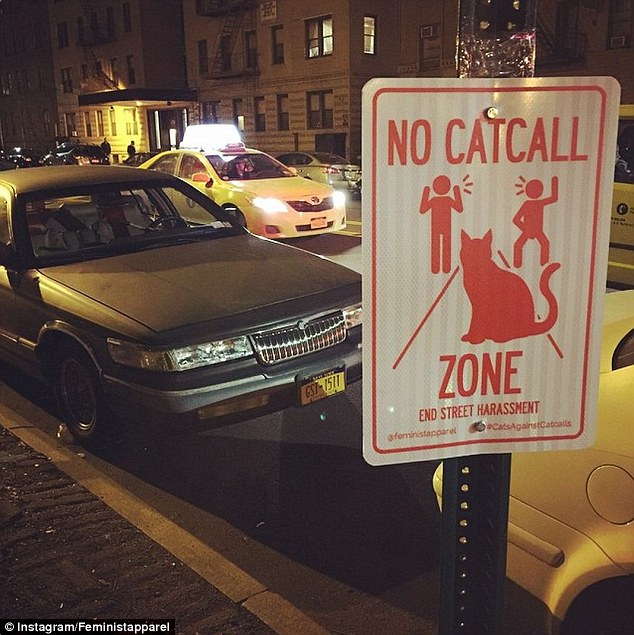Guest blog post by Lindsay Linning
 To write is the only form of catharsis I can find. Because as a coping mechanism, often all I can do in the moment is mentally file away the harasser, the location, the feeling, into the annexes of my mind, to ferment nicely until the time comes when I take to my keyboard to document and immortalise the incident. It is my small victory, using the fury it invokes to fuel a creative pursuit like writing.
To write is the only form of catharsis I can find. Because as a coping mechanism, often all I can do in the moment is mentally file away the harasser, the location, the feeling, into the annexes of my mind, to ferment nicely until the time comes when I take to my keyboard to document and immortalise the incident. It is my small victory, using the fury it invokes to fuel a creative pursuit like writing.
In doing the research for my dissertation on males’ perceptions of street harassment in the UK, I have read countless accounts, many atrocious in nature, of instances of street harassment that have escalated into something more sinister. Sexual assault, rape, physical violence, for example. These stories serve as proof of why we must never perceive street harassment as innocuous fun.
In my own life I have been at the receiving end of stalking, public masturbation, and violence. This handful of incidents punctuate my otherwise mundane personal history of harassment in public by men, and are typically the anecdotes I refer to when substantiating my arguments for why this phenomenon must be taken more seriously by certain individuals. They are the incidents which invoke a look of shock, disdain or disgust in the face of the listener, or are met with a degree of incredulity – ‘There’s no way in my beautiful city that this could happen!”
Sensational stories involving sex and violence have a cinematic quality, stimulating the voyeur within us. They are the incidents which have made the men I know sit up, take note, and imagine for a moment or longer what it is like to be a typical female, leading a typical life, in the world today. They are valuable.
But what about those more frequent, more mundane, innumerable microaggressions? The ones we label as ‘not that bad’ and forget and accept because that’s what the world has conditioned us to do as women and girls? These too are valuable. The risk we run is that daily experiences are invalidated, overwritten and pushed out of focus by the more extreme stories we have become accustomed to considering more worthy of our attention. There needs to be space to acknowledge the seemingly mundane alongside the major.
It has been this accumulation of daily micro-harassments across my life that has collectively instilled a building fury within me towards the lived reality we contend with on a daily basis as females, rather than the more shocking and obscene experiences I’ve had.
My problem lies with men in cars. The car affords men a certain power in instances of harassment. With a car, no sooner have you been intruded upon than the perpetrator has sped off, leaving you powerless on the pavement. You can’t retaliate, you have no agency, and are left to shake off the incident, awash with anger and/or fear.
Sometimes I wonder if vehicles allow men to behave more audaciously in public in a manner akin to how the internet enables online trolls to unleash a side to their personalities that would remain unseen were it not for the anonymity afforded to them by the internet. People can use the internet and vehicles as tools to provoke, intimidate and threaten without bearing any consequences: they never come face to face with their victim. It’s a highly unequal game of cowardice. This is reflected in how some feel entitled to glare, ogle, shout ,gesticulate and blast horns from their cars to an extent I have found does not happen face-to-face on the street. Harassers in cars have led me to feel physically assessed, menaced, taunted and panicked. There are different nuances every time. If these men did this walking down the street, there would be repercussions: I could retaliate, report them, or alert fellow passers-by. Safely cocooned within their cars, however, harassers feel a sense of liberty and their safe space enables them to strip others of their own sense of safety.
Efforts must be sustained to ensure microaggressions of street harassment are not overlooked or dismissed. Because they too have a cumulative effect on the victim and while they may not escalate into more pronounced forms of violence, they chip away at women, reminding us that we are not out in the world on an equal footing with the men around us. Until the harm of living in this day-to-day reality is acknowledged, I’ll keep writing.
Lindsay is an MSc student at the University of Edinburgh in Sociology and Global Change. She’s working with the Edinburgh branch of Hollaback! and is researching street harassment for her dissertation.
